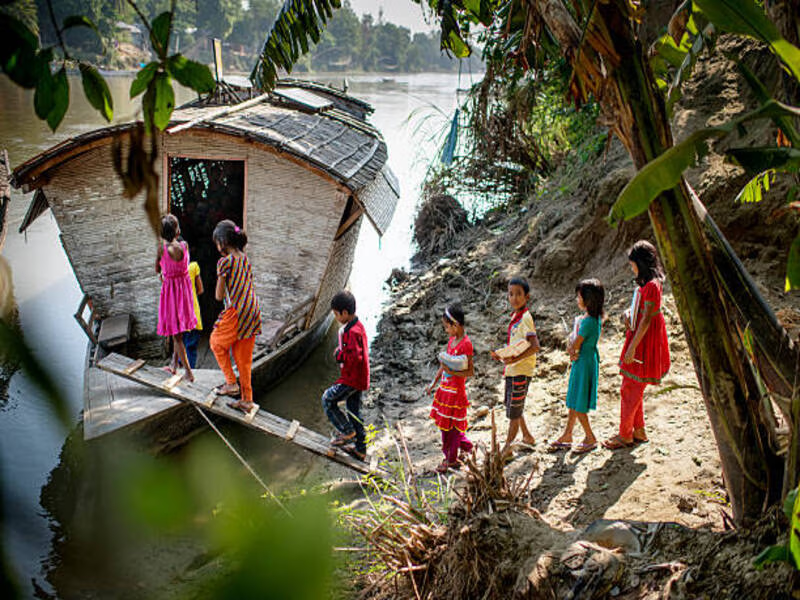Solar-powered floating schools have been established in flood-prone areas of Bangladesh, where road and village access is broken by flooding, and this initiative was brought to children so not miss their classes and education.
One of the students is a 10-year-old Safikul Islam. Every morning, he stands on the verge of his submerged village in Bhangura, western Bangladesh, awaiting the solar-powered classroom that comes sailing right to his door.
His residence is in the inner part of Chalan Beel, a vast 26-square-kilometre (10 sq miles) swamp in which roads are frequently washed away by seasonal flooding and whole villages are submerged.
But in the case of Islam and hundreds of other children, the education is floating.
This project was initiated in 2002 by architect Mohammed Rezwan with a $500 scholarship fund and has since expanded to become a national prototype with non-profit organization Shidhulai Swanirvar Sangstha (SSS).
There are now over 100 boats that are used as schools, libraries, and clinics. The project has already trained more than 22,000 students, and even this year, the project has received a UNESCO Confucius Prize for Literacy.
Chalan Beel has approximately 2 dozen boats as classrooms that visit villages along the river six days a week.

The school boats are prepared using domestic timber; they have benches, blackboards, and shelves. The computers and lights are powered by solar panels.
A senior manager of SSS, Madhusudan Karmaker, said, “Right now, we have 2,240 pupils enrolled in 26 boat schools. Over 22,500 students have graduated so far, and during severe floods, these boats also double as shelters for displaced families.”
The same models have been followed by other NGOs in their work in the wetlands of the country.
Classes are conducted on three shifts per day, with each taking approximately three hours. Teachers go through the small waterways to pick up students, teach in Bengali, mathematics, and general knowledge.
Islam’s mother, Sufia Khatun, while waiting on the riverbank for her son to return, states, “But this boat lets my children dream of a better future.”
Over a decade-old teacher, Sakhina Khatun of SSS, added that similar floating school projects have since been inspired by other countries such as Nigeria, Cambodia, and the Philippines.
She further added that “These schools never close — not even during floods. That’s what makes them special.”
A World Fellow at Yale University, Founder Rezwan said, “I haven’t had many things during my life, and these children don’t have much either. But giving them access to schooling, healthcare, and seeing that replicated around the world – that gives me motivation.”






